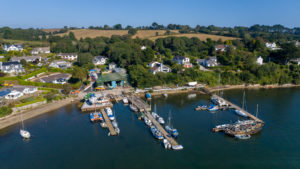Stena Line: Women are the answer to the jobs crisis in shipping

The shipping sector, like many other parts of the economy, has not been immune to the effects of Brexit, and the pandemic, which has led to a shortage of people needed to fill vacant roles and address the huge skills shortage in the industry.
Stena Line believes that if the shipping industry is going to solve its jobs crisis, there is a simple solution: it urgently needs to encourage more women to work in careers at sea, in roles that are often still viewed as being for men.
With a shortage of skilled labour within the shipping industry, there is currently fierce competition for talent. Stena Line says companies need to provide an attractive place for young seafarers to work and develop successful careers. The Swedish ferry company has set a target of ensuring that by the end of 2022, 30 per cent of all its management are females. In a sector where only two per cent of the 1.2 million seafarers are women, the company says this is an ambitious target that lays down a gauntlet for others to try to achieve.
“The shipping sector is in a jobs crisis and there is a shortage of people in every part of the industry,” said Margaret Jensen Dickson, group head of people at Stena Line, after her appearance at the Women in Maritime Summit during last month’s London International Shipping Week. “No matter whether the problem is caused by Brexit, or the pandemic, there is a simple solution and that is to encourage more women to work in shipping. The people shortage is one of the biggest crises Stena Line has ever faced and we are throwing the kitchen sink at it.”
Earlier this year Stena Line appointed its first female captain. Since joining the company in 2017, and after four promotions, Lynette Bryson became master of the largest vessel in the company’s fleet, Stena Adventurer, where she also has a full bridge team of female officers.
“Onboard roles can no longer be seen as a male domain. With the appointment of Lynette Bryson as our first female captain, we have shown that women can, and will, succeed at sea and Stena Line will be here to support them,” adds Dickson.
Bryson comments: “I am incredibly proud to be sailing as master on the Stena Adventurer, and as the first female master at the company; this could not have been done without the support of my colleagues at Stena Line. As a young woman I always dreamt of a career at sea and never thought I could ever achieve being a captain. I hope my position can encourage more young women to follow my path and have a successful maritime career.”











